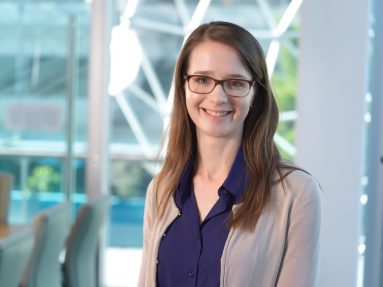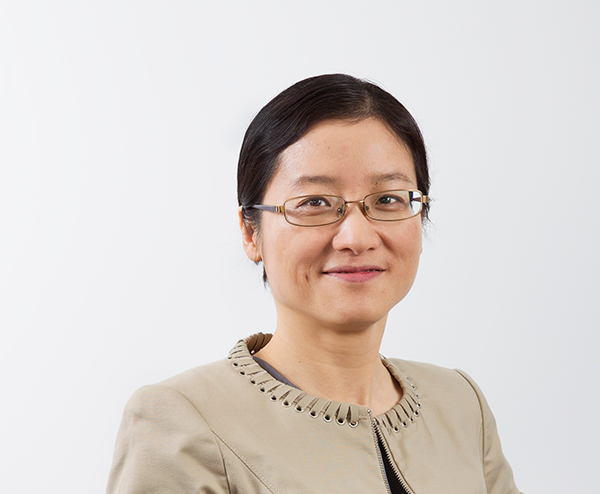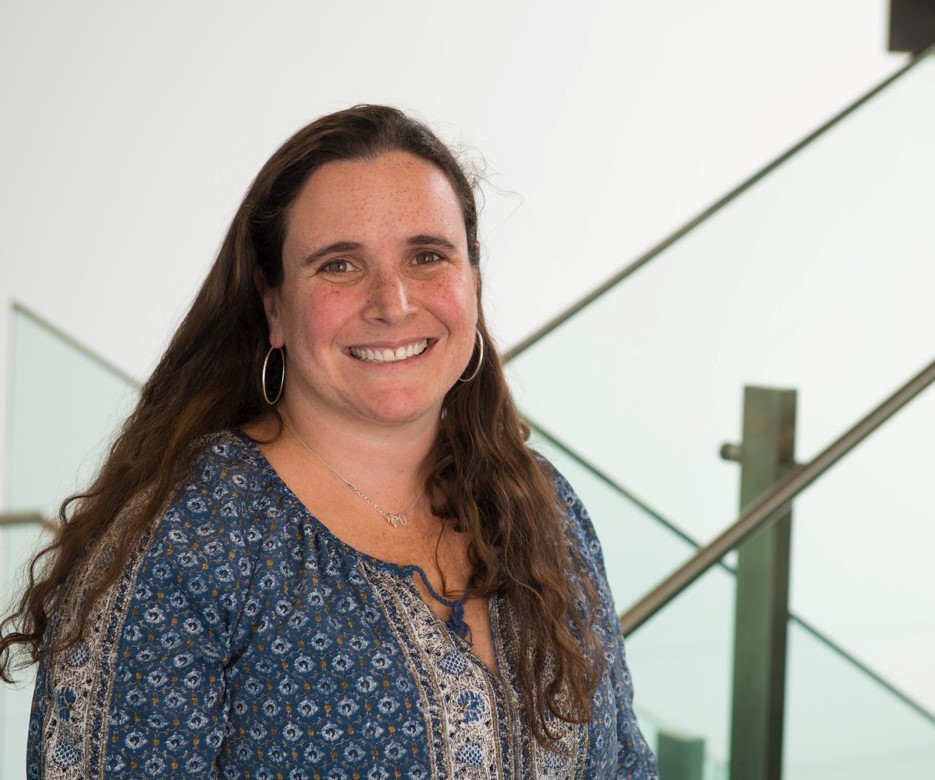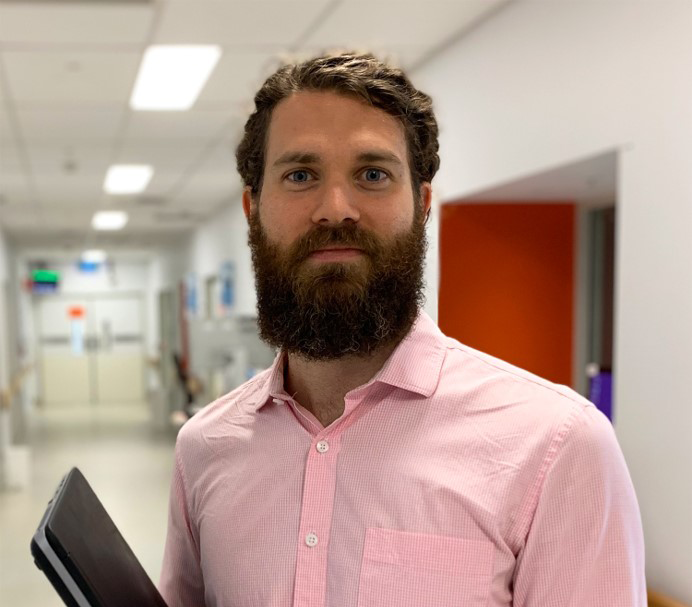Leukaemia Foundation invests almost $3m in innovative AML research
Seven research projects that are part of the Leukaemia Foundation’s National Research Program over 2019-2022 focus on better understanding and treating acute myeloid leukaemia (AML).
This investment of $2.99 million across the seven projects into AML research at some of Australia’s leading research centres is aimed at preventing infections in people during and after a transplant, testing new combination therapies, developing targeted therapies for childhood AML, international clinical trials that give Australians access to new therapies as well as a genomics trial, and new models for drug testing.
These research projects sit under several funding mechanisms – Strategic Ecosystem Research Partnerships, our PhD Scholarship Program in collaboration with the Haematology Society of Australia and New Zealand, the Priority-driven Collaborative Research Scheme, through Cancer Australia, and the Trials Enabling Program in collaboration with the Australasian Leukaemia & Lymphoma Group.
Strategic Ecosystem Research Partnerships (SERP)
One of the Leukaemia Foundation’s nine current Strategic Ecosystem Research Partnership projects focuses on AML.
A bone marrow transplant (BMT) or peripheral blood stem cell transplant (SCT) is a possible treatment for AML. After having an allogeneic BMT or SCT, in which someone receives bone marrow tissue or stem cells from a donor, graft versus host disease (GVHD) may occur. Sometimes the donated cells view the recipient’s body as foreign and attack it. GVHD affects most BMT or SCT recipients, and 20% of those people develop severe acute GVHD that does not respond to conventional treatment. Along with opportunistic infections, GVHD accounts for most transplant-related deaths. Better outcomes for GVHD will be achieved by changing clinical practices for transplant recipients who have GVHD; discovering biomarkers with diagnostic, prognostic and predictive power, to prevent GVHD; and using agents such as CAR T-cell therapy, immunomodulatory and immunotherapy agents and genetically modified T-cells to reduce blood cancer relapse and improve patient survival. The Centre for Blood Transplant and Cell Therapy (CBTCT) is a recent Centre of Research Excellence endorsed by the National Health and Medical Research Council to develop a world class, multi-centre approach to design and deliver improved therapies for people with blood cancers. The Leukaemia Foundation is a major partner and the only non-government organisation supporting this project. The overall aims of the CBTCT are to meet the urgent need for new treatment approaches to better prevent and treat GVHD and to maintain and/or augment immunity to leukaemia. The chief Australian investigators – Professor David Gottlieb, Professor David Ritchie, Associate Professor David Curtis and Dr Siok Tey – are world leaders in transplant research, and the international chief Investigators on the team are Professor Bruce Blazar and Professor James Ferrara, both from the U.S.
Priority-driven Collaborative Cancer Research Scheme (PdCCRS) in collaboration with Cancer Australia
The Leukaemia Foundation, though its National Research Program, supports the best emerging early career blood cancer researchers and clinicians through the Federal Government’s Cancer Australia’s Priority-driven Collaborative Cancer Research Scheme. The scheme brings together cancer charities with similar research interests to combine funds and co-fund research with Cancer Australia. Nurturing early career medical researchers and clinicians is critical to keeping the most promising and exciting talent in Australia. Over the last two years, we have funded seven early career researchers through this scheme and three of those are in the field of AML.

Studies have shown that the standard culture of leukaemia cells for research purposes does not accurately mimic the natural environment of the bone marrow in the human body and this hinders the translation of lab results to the clinic. Dr Laura Bray’s study at the Queensland University of Technology’s Institute of Health and Biomedical Innovation (Brisbane) is Development of a translational bioengineered microenvironment model to advance pre-clinical acute myeloid leukaemia research. This project aims to develop new models for drug testing that provide information about the biology of AML development and mechanisms of drug resistance.

AML is the second most common type of leukaemia in children. Despite all the improvements in treatments for children with blood cancer, many children with AML will relapse after chemotherapy and less than 30% of patients with this aggressive form of blood cancer can be cured with current therapies The following two research projects are focused on understanding relapse and developing new therapies aimed at childhood AML.
Leukaemia stem cells (LSCs) are the major cause of relapse, and Dr Jenny Wang and her team at the Children’s Cancer Institute (Sydney) are studying how to eradicate LDCs without harming healthy cells. This project aims to develop a novel LSC-targeted therapy with minimal side-effects and toxicity that will improve the dismal outcome of childhood AML.

At the Walter and Eliza Hall Institute (Melbourne) Dr Gabriela Brumatti will test a novel combination therapy – the Smac-mimetic drug birinapant plus multidrug resistance inhibitors (MDR1i). Her project, Targeting multidrug resistance protein 1 (MDR1) enhances the efficacy of Smac-mimetic based therapy in Acute Myeloid Leukaemia will determine how this therapy can be effectively used to increase the chances of cure, with reduced side-effects.
PhD scholarships in collaboration with the Haematology Society of Australia and New Zealand (HSANZ)
The Leukaemia Foundation is helping the brightest medical and science graduates pursue a research career in blood cancer by collaborating with the Haematology Society of Australia and New Zealand to co-fund PhD scholarships. Over the last two years we have been proud to award six scholarships through our PhD Scholarship Program including one that focuses on preventing infections in patients undergoing bone marrow transplantation.

Julian Lindsay is a bone marrow transplant pharmacist and his research project, Antifungal management optimisation in haematological malignancy and haematopoietic stem cell transplantation, is aimed at preventing infections in people with blood cancer and those undergoing bone marrow transplants. These patients have highly suppressed immune systems due to having chemotherapy and the transplantation techniques used to achieve better cure rates. Based at the Fred Hutchinson Cancer Research Center in Seattle (U.S.), Julian will address critical knowledge gaps related to specific patient risk factors for developing infections such as cytomegalovirus, Epstein-Barr virus and invasive fungal infections, and investigate the optimisation of antimicrobial therapies to prevent infections and improve the survival of these patients.
Trials Enabling Program (TEP) in collaboration with the Australasian Leukaemia & Lymphoma Group
Participating in a clinical trial gives a patient access to the latest ground-breaking research and innovative treatments. In an Australian first, the Leukaemia Foundation established a funding program to help blood cancer patients access promising new drugs that are currently being tested overseas. We have partnered with the nation’s leading blood cancer clinical trial group – the Australasian Leukaemia & Lymphoma Group (ALLG) – to establish the Trials Enabling Program so Australian patients can take part in internationally-led trials without leaving the country. TEP provides patients with access to new therapeutic drugs years ahead of the expected availability on the Australian market.

The prognosis for AML patients who relapse is poor, especially for elderly AML patients, due to the aggressive nature of the disease and the intensive treatment required. The aggressiveness of AML and its rapid onset is why most AML clinical trials have been offered to people who have relapsed or not responded to current standard therapies and have refractory disease. The Leukaemia Foundation, in collaboration with the ALLG, the Haemo Oncology Foundation for Adults in the Netherlands (HOVON), and the Acute Myeloid Leukaemia Study Group, Germany (AMLSG) is sponsoring two new clinical trials aimed at people with newly diagnosed AML.

Associate Professor Andrew Wei is the principal investigator for a multi-centre international clinical trial that will be run out of Monash University (Melbourne). The AMLM24 clinical trial for newly diagnosed AML and MDS (with FLT3 mutation) is looking at a new treatment regimen as a frontline treatment.
Professor Paula Marlton is the principal investigator for a second multi-centre international clinical trial, run out of the Queensland Institute of Medical Research. The AMLM23 clinical trial is looking at a new treatment regimen as a frontline treatment for newly diagnosed AML and MDS (with IDH1 or IDH2 mutations).
Last updated on March 23rd, 2021
Developed by the Leukaemia Foundation in consultation with people living with a blood cancer, Leukaemia Foundation support staff, haematology nursing staff and/or Australian clinical haematologists. This content is provided for information purposes only and we urge you to always seek advice from a registered health care professional for diagnosis, treatment and answers to your medical questions, including the suitability of a particular therapy, service, product or treatment in your circumstances. The Leukaemia Foundation shall not bear any liability for any person relying on the materials contained on this website.